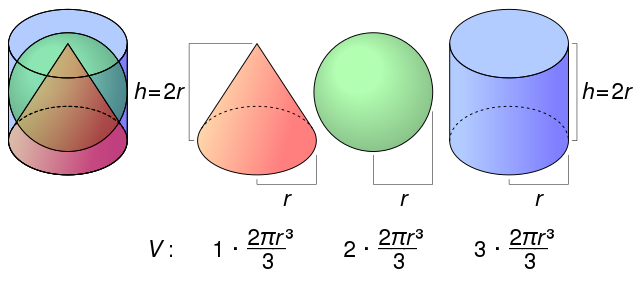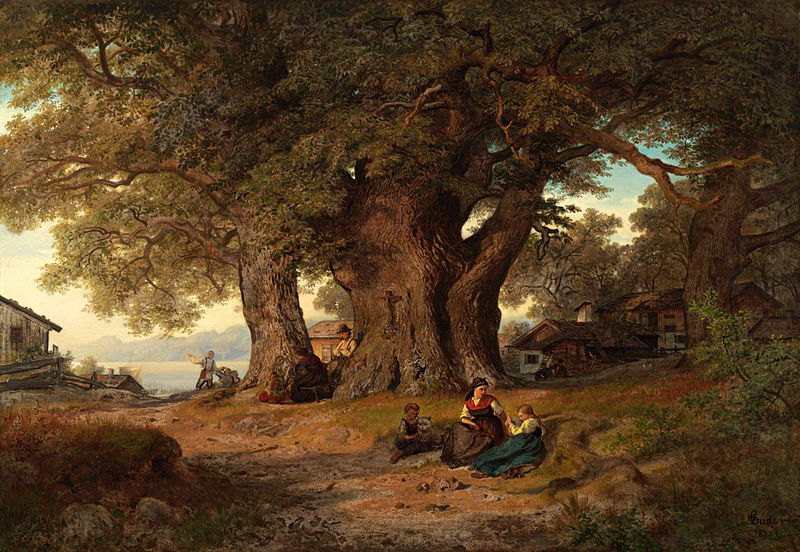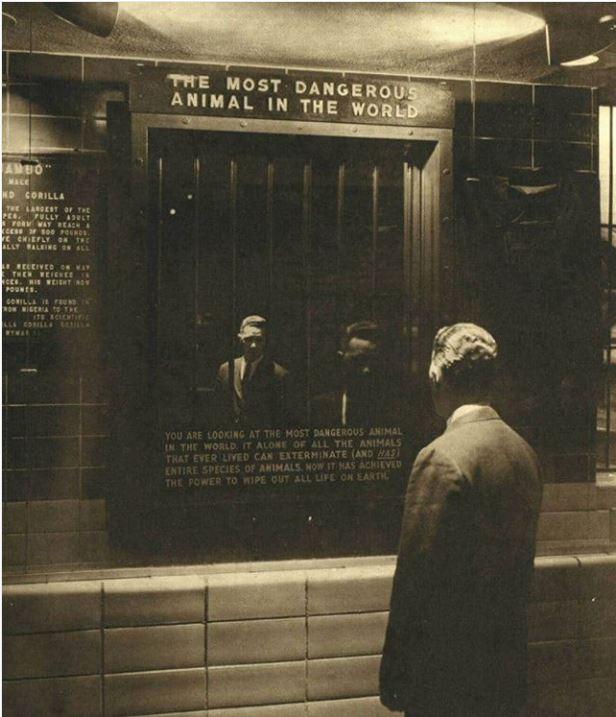
Discovered by Archimedes: The volume of a cone, sphere, and cylinder of the same height and radius fall in the ratio 1:2:3.
A cone plus a sphere is a cylinder.

Discovered by Archimedes: The volume of a cone, sphere, and cylinder of the same height and radius fall in the ratio 1:2:3.
A cone plus a sphere is a cylinder.
In 1983 Paul Desmond Taafe imported certain packages into England. He thought they contained currency, which he erroneously believed was illegal to import. The packages actually contained cannabis, which was illegal to import. Was he “knowingly concerned in [the] fraudulent evasion” of any prohibition on importing goods?
He was convicted but appealed. “If we describe his action in terms of his own beliefs (about the facts and about the law), it obviously constituted an attempt to commit (indeed, it constituted the actual commission of) that crime,” writes R.A. Duff in Criminal Attempts. But Taafe wasn’t “knowingly concerned” in evading the ban on cannabis — he didn’t know he was importing cannabis. And however guilty he may have felt for smuggling currency, that wasn’t a crime.
He was acquitted.
(Taaffe [1983] 1 WLR 627 (CA); [1984] 1 AC 539 (HL).)

roboreous
adj. resembling oak; sturdy, robust

In 1939, as the shadow of war spread over Europe, British stockbroker Nicholas Winton helped to spirit hundreds of threatened children out of Czechoslovakia. In this week’s episode of the Futility Closet podcast we’ll describe Winton’s struggle to save the children and the world’s eventual recognition of his achievements.
We’ll also consider some ghostly marriages and puzzle over a ship’s speed.
In 2012, the admissions department at the University of Chicago received a package addressed to Indiana Jones — or to Henry Walton Jones Jr., Indiana’s full name. “The package contained an incredibly detailed replica of ‘University of Chicago Professor’ Abner Ravenwood’s journal from Indiana Jones and the Raiders of the Lost Ark,” the university posted on its Tumblr page. It included photos, maps, and even handwritten text (“I was able to speak through an interpreter with the Guardian of Ark who told me that no other man beside himself could lay eyes on the Ark, that it was an absolutely holy object, and that the world would not pollute it by looking at it,” Ravenwood warns. “He added that he and the villagers would protect the Ark with their lives if necessary.”)
“This package was a little perplexing because we couldn’t find the staff member or the professor [it was intended for] in the directory,” undergraduate outreach Garrett Brinker told Wired.
The university set up an email tip line and inquired with Lucasfilm, which only responded, “We were just as surprised to see this package as you were!”
It turned out that the the replica was one of several that had been shipped from Guam to Italy; it had somehow fallen out of the package in Honolulu, and the post office had delivered it faithfully to the address it bore. “We believe that the post office wrote on our Zip code on the outside of the package and, believing the Egyptian postage was real, sent it our way. From Guam to Hawaii en route to Italy with a stopover in Chicago: truly an adventure befitting Indiana Jones.”
In exchange for some University of Chicago merchandise, the original “prop replicator” in Guam agreed to let the school keep the journal — it’s now on display in the main lobby of the Oriental Institute there.
See Afoot.

If we assume the existence of an omniscient and omnipotent being, one that knows and can do absolutely everything, then to my own very limited self, it would seem that existence for it would be unbearable. Nothing to wonder about? Nothing to ponder over? Nothing to discover? Eternity in such a heaven would surely be indistinguishable from hell.
— Isaac Asimov, “X” Stands for Unknown, 1984

At long last, after the three volumes were successfully launched, he became what [C.S.] Lewis called ‘cock-a-hoop’ and talked with great enthusiasm of the fate of the pirated paperback version and the astonishing growth of the Tolkien cult. He enjoyed receiving letters in Elvish from boys at Winchester and from knowing that they were using it as a secret language. He was overwhelmed by his fan mail and would-be visitors. It was wonderful to have at long last plenty of money, more than he knew what to do with. He once began a meeting with me by saying: ‘I’ve been a poor man all my life, but now for the first time I’ve a lot of money. Would you like some?’
— George Sayer, “Recollections of J.R.R. Tolkien,” in Joseph Pearce, ed., Tolkien: A Celebration, 1999
In 1996, Will Shortz invited the listeners of National Public Radio’s Weekend Edition Saturday to submit word-level palindromes — sentences that remain unchanged when their words are read in reverse order, such as “King, are you glad you are king?” Runners-up:
The grand prize winner, by Peter L. Stein of San Francisco, was “First Ladies rule the state, and state the rule — ‘Ladies first!'”
(Will Shortz, “New Word Palindromes,” Word Ways 30:1 [February 1997], 11-12.)

The surface of a standard soccer ball is covered with 20 hexagons and 12 pentagons. Interestingly, while we might vary the number of hexagons, the number of pentagons must always be 12.
That’s because the Euler characteristic of a sphere is 2, so V – E + F = 2, where V is the number of vertices, or corners, E is the number of edges, and F is the number of faces. If P is the number of pentagons and H is the number of hexagons, then the total number of faces is F = P + H; the total number of vertices is V = (5P + 6H) / 3 (we divide by 3 because three faces meet at each vertex); and the total number of edges is E = (5P + 6H) / 2 (dividing by 2 because two faces meet at each edge). Putting those together gives
and since the Euler characteristic is 2, this means P must always be 12.

In the 1960s, the Great Apes house at the Bronx Zoo featured an exhibit titled “The Most Dangerous Animal in the World.”
The enclosure contained a mirror.